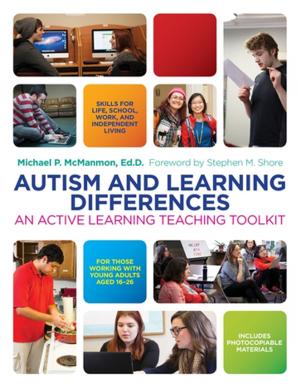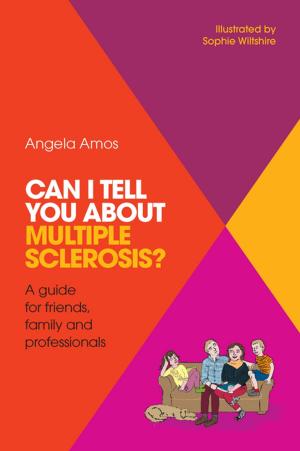Supernourishment for Children with Autism Spectrum Disorder
A Practical Nutritional Approach to Optimizing Diet for Whole Brain and Body Health
Nonfiction, Health & Well Being, Health, Nutrition & Diet, Nutrition, Food & Drink, Family & Relationships| Author: | Angelette Muller | ISBN: | 9780857007469 |
| Publisher: | Jessica Kingsley Publishers | Publication: | December 3, 2015 |
| Imprint: | Jessica Kingsley Publishers | Language: | English |
| Author: | Angelette Muller |
| ISBN: | 9780857007469 |
| Publisher: | Jessica Kingsley Publishers |
| Publication: | December 3, 2015 |
| Imprint: | Jessica Kingsley Publishers |
| Language: | English |
This comprehensive guide provides everything you need to transition your child with autism to a nutrient-packed diet. It will increase your understanding of nutrition and autism by
· explaining how diet supports the function of brain and body (including learning and attention, energy production, sensory processing and gut-brain communication)
· describing how a highly processed diet can lead to nutritional deficiencies and how to choose more nutritionally dense options
· looking at the science behind the challenges that children with autism face, such as problems with processing carbohydrates or ingredients such as phenols and oxalates.
It then guides you through making dietary changes, offering
· a range of breakfast, lunch, dinner, snacks and drinks recipes that are easy to follow and prepare.
· coding to indicate which recipes can be used in conjunction with specialist diets including GF, CF, SCD, FODMAP and GAPS (so if your child is on a specific diet, this book is still for you)
· practical tips on how to build a meal and plan a weekly menu
· advice on overcoming common feeding challenges and poor eating habits.
This book will be an invaluable addition to the shelves of parents of children with ASD as well as health practitioners such as nutritionists and dieticians who want to know more about autism.
This comprehensive guide provides everything you need to transition your child with autism to a nutrient-packed diet. It will increase your understanding of nutrition and autism by
· explaining how diet supports the function of brain and body (including learning and attention, energy production, sensory processing and gut-brain communication)
· describing how a highly processed diet can lead to nutritional deficiencies and how to choose more nutritionally dense options
· looking at the science behind the challenges that children with autism face, such as problems with processing carbohydrates or ingredients such as phenols and oxalates.
It then guides you through making dietary changes, offering
· a range of breakfast, lunch, dinner, snacks and drinks recipes that are easy to follow and prepare.
· coding to indicate which recipes can be used in conjunction with specialist diets including GF, CF, SCD, FODMAP and GAPS (so if your child is on a specific diet, this book is still for you)
· practical tips on how to build a meal and plan a weekly menu
· advice on overcoming common feeding challenges and poor eating habits.
This book will be an invaluable addition to the shelves of parents of children with ASD as well as health practitioners such as nutritionists and dieticians who want to know more about autism.















